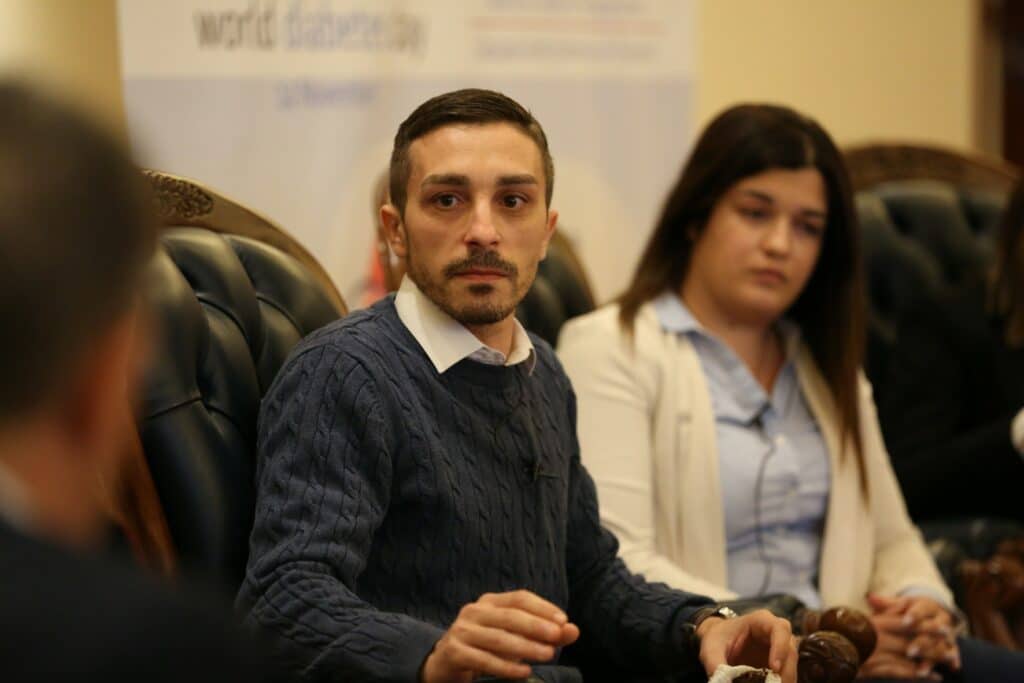
Diabetes Association asks for free continuous glucose monitoring devices
Those living with Type 1 diabetes spend €3,600 a year on life-changing continuous glucose monitoring systems and they are calling on the government not to wait till 2023 to start providing these free devices for all.
The hardships these people face in accessing devices that empower them to better manage their blood sugar levels were raised during a seminar held today by the Maltese Diabetes Association to mark World Diabetes Day.
In Malta there are some 1,600 persons living with Type 1 diabetes and accessing these highly effective monitoring devices meant a financial outlay of €300 month, which some could ill-afford.
While the association welcomed the government’s decision to provide those under 21 with free devices, there remained close to 1,350 people with Type 1 diabetes who had to wait close to two years before this free service was extended to include them.
Continuous glucose monitoring devices automatically track blood glucose levels in real time throughout the day and night enabling users to take immediate action, while providing peace of mind when driving, travelling, exercising or socialising.
Association president Chris Delicata said: “By investing now the government will save money in the long-term because those living with Type 1 diabetes will drastically reduce their risk of complications and the need for hospital treatment,” association president Chris Delicata said.
This point was raised by both Prof. Stephen Fava, head of the Diabetes and Endocrine Centre at Mater Dei Hospital, and consultant physician Sandro Vella during the interventions they made during the seminar.
Prof. Fava and Dr Vella both stressed the point that the country would be saving money in the long run as complications were minimised if the condition was better managed.
These devices are provided for free or highly subsidised in neighbouring countries.
During a debate moderated by John Bundy, those living with Type 1 diabetes said it was difficult to truly appreciate how these devices empowered to live a better quality of life.
A young man who lives with this condition, said: “It’s up to us and the country to take action. We’re not after pity… We are appealing to the government to help us not be a burden on the state’s health services.”
Another woman said she was nursing her newborn when this apparatus set off an alarm to alert her to her dangerously low glucose levels, preventing what could have been an ugly fall.
As the world marks the centenary from the discovery of insulin, the theme of the seminar was Access to Diabetes Care: If Not Now, When?; a theme all the more relevant because millions of people with diabetes around the world still cannot access the care they need.
- November 22, 2021 No comments Posted in: Sports, health and fitness Tags: Maltese diabetes association






